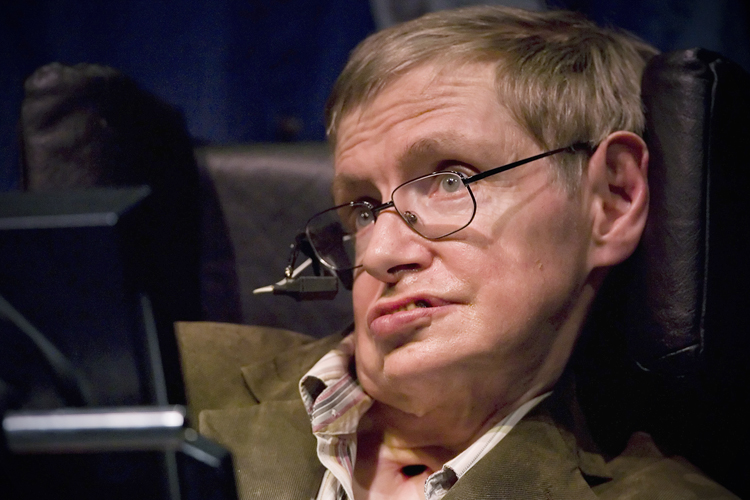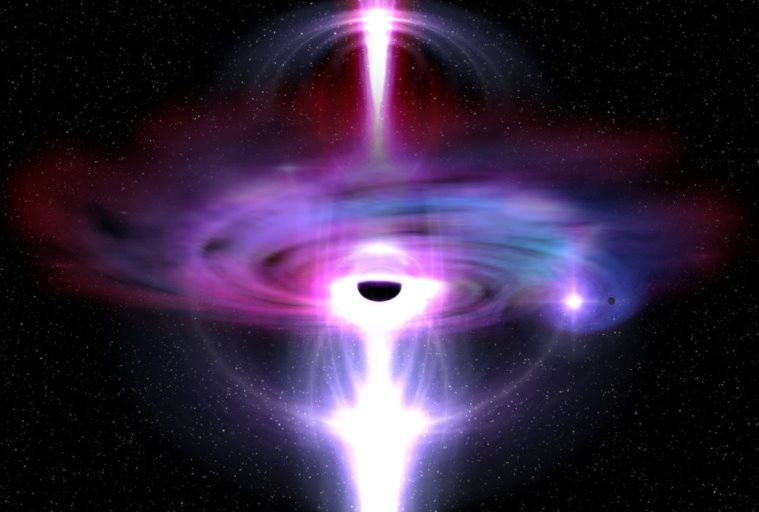Stephen Hawking: Solving ‘Information Paradox?’
|
Stephen Hawking, the most celebrated Physicist of current times, has again come up with a new scientific potshot. Contrary to what he considered earlier about black hole, he now concedes that all do not end, if one passes into a black hole. He now proposes a novel theory about how the information about the things that gets into black hole is processed and where it is transmitted or stored. This proposal is a marked deviation, if not a U-turn from Hawking’s earlier argument that any matter that is gulped by a black hole, is forever lost or hidden from the external universe. Along with this announcement, Hawking has also conceded a bet – a famous one in the world of science- made by himself and fellow theoretical physicist, Kip Thorne with John Preskill, in 1997. This occurred in California Institute of Technology when John Preskill insisted that the information held by anything that entered in a black hole was not emptied and so could be recovered. Hawking and Thorne had vehemently opposed the idea.This about turn also marks the end of a thirty year old personal grappling for Hawking. In 1974, while trying to derive fresh equations, as he attempted to combine the established ideas of quantum mechanics and general relativity, he came across the finding that black holes should emit heat and this phenomenon is now known as “Hawking Radiation”. The contradiction that the scientific world faced was that this radiation will dissipate energy, which implies that the black hole will gradually evaporate and will fall into nothingness in a final explosion. This outburst would also take in the important information with it. This eventuality worked against the fundamental edicts of quantum physics, which categorically denies the
|
|
 possibility of an information wipe-out. In the past years, many physicists put forward several solutions to this paradox. Hawking’s take was that the concentrated gravity existing within a black hole somehow made sure the upkeep of the veracity of quantum laws. More interestingly he suggested that the information that got sucked into black hole might be travelling into a parallel universe. This idea had the potential of inspiring many a science fiction. possibility of an information wipe-out. In the past years, many physicists put forward several solutions to this paradox. Hawking’s take was that the concentrated gravity existing within a black hole somehow made sure the upkeep of the veracity of quantum laws. More interestingly he suggested that the information that got sucked into black hole might be travelling into a parallel universe. This idea had the potential of inspiring many a science fiction.
Observations suggested that the physical state of things thatvanish into a black hole seems to be lost absolutely. The contradiction was that it must be a non-occurrence according to the functioning of universe. Even the information that enters a black hole must reach somewhere.
Addressing six hundred physicists and a section of world media, Hawking shared that his belief is now that black holes
|
|
do not destroy things, which falls into them and an abstract quantity named ‘information’ trickles out of black hole, in due time. He also said that this information elucidates the core characteristics of all particles in the universe, be them of whatever type. The event occurred in KTH Royal Institute of Technology, where Hawking Radiation Conference, hosted by Nordic Institute for Theoretical Physics took place. This conference was dedicated to dwell upon the mystery of the “information paradox”, which was explained earlier.
Stephen Hawking was catapulted to renown with his bestselling book, “A Brief History of Time”, which attempted to describe to a common man how universe works. Although he was virtually paralyzed due to amyotrophic lateral sclerosis from his mid -20s, he circles the world for lectures and he communicates with the aid of a speech synthesizer and a hand held device to pick up words.
Unlike the world view of Semitic religions, which projects Man (especially male) as the “master of universe”, Stephen Hawking’s opinions about universe are fraught with humility. He considers humans as only “an advanced breed of monkey living in a small planet of an average sized star.”
|
|
